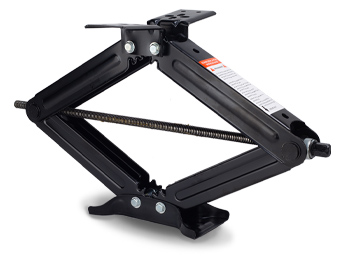The trailer jack is an essential part of safe towing. It is a vertical mechanism mounted on the front tongue of the trailer. The main function is to raise and lower the tongue/front of the trailer for attachment to the connector or hitch. It allows the trailer to remain in a horizontal position when it is not secured to the vehicle. Standard quality trailer jack wheel and replacement parts are essential to ensure safety on the road.
Tow-max trailer jacks are manufactured for campers, boat trailers, A-frame trailers, utility trailers, horse trailers, catering trailers, and many more. You will like our electric tongue jack which will be perfect for your trailer and easy to install. We use the heavy duty trailer jack wheels to ensure the longevity of each jack. We also supply spare electric trailer jack parts and other trailer jack parts for repair and replacement. Our heavy-duty trailer jack wheels and trailer jack handles are very rewarding compared to many other brands.
We work with the leading trailer jack manufacturers. Our trailer jacks offer consistent performance with high quality and durability.












